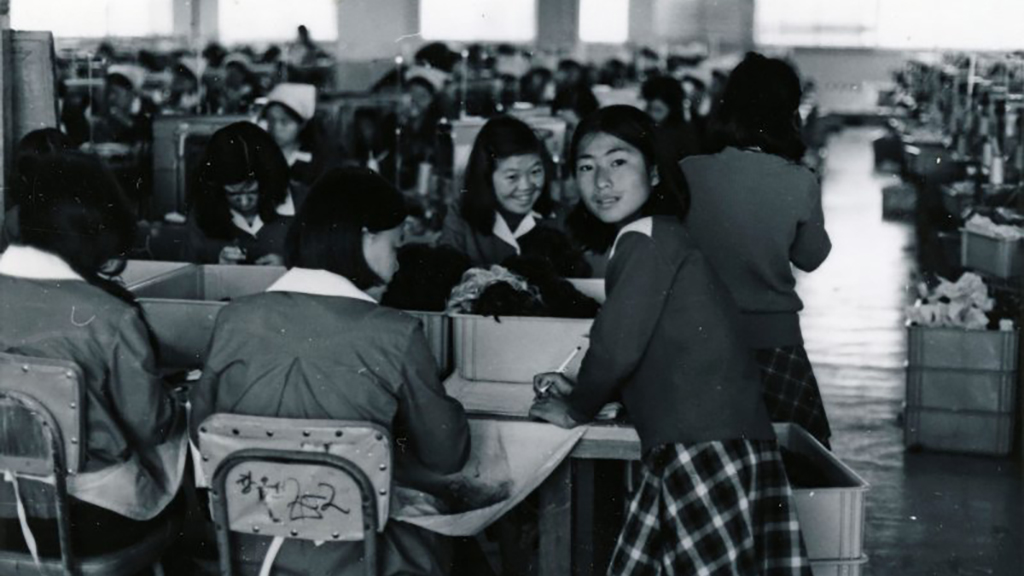Pedro Huilca, an influential Peruvian trade union leader, was leaving for work in 1992 when he was brutally gunned down outside his home. His daughter Flor was with him at the time.
As a university student, Flor was stuck deciding whether to pursue law or journalism. The slaying put her on her father’s path and chose journalism.
“My motivation was the people, my father was a union leader so I was indirectly influenced by him,” Flor told Humber Et Cetera in an interview from Lima. “My father taught me to fight for society’s struggles, so I did.”
Huilca was born into poverty, given up to adoption and exploited as a child worker. He became involved in labour rights at 19, eventually becoming general secretary of the General Confederation of Workers of Peru (CGT), the country’s largest labour organization.
“He experienced injustice at a young age, from early on he had to fight for even basic rights so he understood the only way to make a difference was to unionize, to fight together,” Flor said.
As general secretary, he secured the ability of workers to unionize at a federal level, get vacation time, the ability to retire at 60 years old and the ability to negotiate collective agreements.
“It started as a labour movement but the key was this progress (that) led directly to becoming a political movement furthering democracy,” Flor said. “When you fight for labour rights you’re inevitably fighting for people’s rights.”
A statue of Huilca stands at Plaza Víctor Raúl Haya de la Torre de Lima in Peru, to honour his past accomplishments and the labour’s future aspirations.
“Although his life was cut short, the statue is a symbol that rather than vanity, I feel it’s a reminder for others to carry on the torch — to continue the struggle,” Flor said.
Joohee Lee, sociology professor at Ewha Womans University in South Korea, was an elementary student in the1970s when women factory workers fought for their rights.
“I didn’t know any better, I just heard they were a group of stupid workers misled by outside forces,” Lee said. “They were called ‘commies’ influenced by North Korea.”
It was a propaganda smear. They were seeking humane treatment at their workplace, she said.
“Everyone knew women were sacrificing themselves to boost the economy,” Lee said. “But there was a lack of recognition, people didn’t see their contributions to the economy.”
The then export-oriented nature of South Korea’s economy made it easy for poor conditions and exploitation to be rampant. In 1970, 57.5 per cent of female workers were in labour intensive work with no guarantee of wages or employment.
“Under Chung Hee Park’s dictatorship of the 70s’ we had industrial unions, but these were pro-company unions, they worked for the company,” Lee said. “The leaders of these unions were co-opted by the companies. So the women workers stood up against this.”
At the time, the rate of women in grassroots unions was higher than their male counterparts. Union leaders for large companies such as Wonpang Textile, Namhwa Electric and Soyo Trading were women, signalling a shift in the idea of independent women workers.
They withstood police crackdowns, experiencing horrors such as sexual assault and brutal beatings. Women participating in labour rights were considered dangerous.
“It was really a significant time. It showed us what a democratic union should be and why we needed democracy in society,” Lee said. “They are heroes in Korean history.”
Mark Leier, a history professor at Simon Fraser University, was a working class kid from Ladner, B.C., who traced his fascination with the Wobblies to a time when he asked the proprietor at a Vancouver bookstore about a folk song.
“I said look, Joan Baez sings a song about Joe Hill. Right? Clearly, he’s some kind of left organizer guy. She pointed at a book and told me I have to read it,” Leier said.
Hill was a labour rights activist, a member of the Industrial Workers of the World (IWW) and was executed by the U.S. The book, Rebel Voices, is a collection of IWW poetry, stories, songs and editorials.
“I just became completely thrilled and enraptured by it all,” Leier said.
The IWW, known as the Wobblies, an international union founded in 1905, was critical of capitalism, state socialism, and conservative trade unions. By 1935, they had 12 branches with 4,200 members across Canada.
“I’ve been working in enough places to know that most trade unions at the time were interested in looking after members in the union and getting their officers re-elected. Unions became bureaucratic,” he said.
The IWW saw trade unions as part of the problem dividing workers, looking after only skilled workers who were overwhelmingly male and white.
“I think the IWW’s radical analysis, not being afraid to take militant action, and insisting on democratic unionism to prevent the rise of bureaucracy, that over time would become more conservative is really crucial,” Leier said.
“Their newspapers were banned in Canada, hundreds of Wobblies were arrested, and sentenced to long prison terms,” Leier said. “Lots of them were even deported.”
He sees the modern Amazon, Starbucks and other places organizing and being successful, as having adopted The Wobblies’ fight, whether they know it or not.

